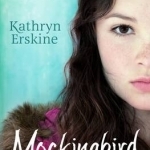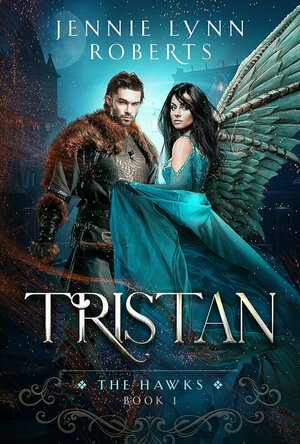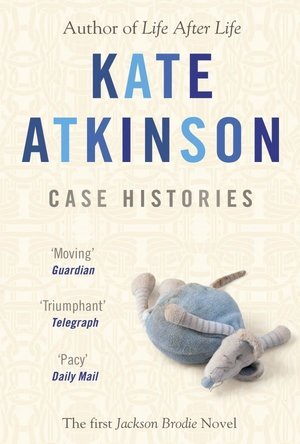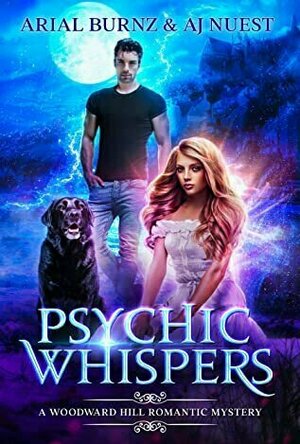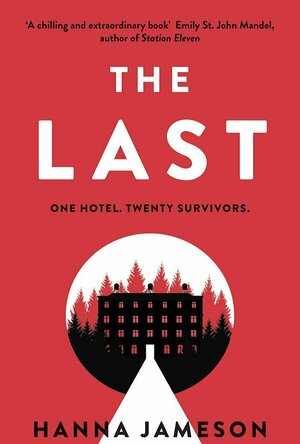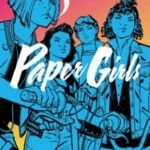
Paper Girls: Volume 1
Cliff Chiang, Brian K. Vaughan, Matthew Wilson and Jared K. Fletcher
Book
From Brian K. Vaughan, #1 New York Times bestselling writer of SAGA, and Cliff Chiang, legendary...

Cold Comfort Farm
Book
A hilarious and merciless parody of rural melodramas and one of the best-loved comic novels of all...
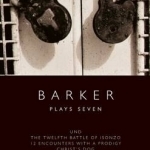
Barker: Plays Seven
Book
"Und, a play for one woman and six trays, is a moving study of dignity and self-delusion. When a...
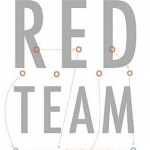
Red Team: How to Succeed by Thinking Like the Enemy
Book
Red teaming. It is a practice as old as the Devil's Advocate, the eleventh-century Vatican official...
Liberty Boston (93 KP) rated Mockingbird in Books
Mar 15, 2021
I'm writing this in a document first so I can copy/paste to everything else later LOL.
Mocking Bird was given to me by my aunt who occasionally sends me books she thinks I'd enjoy. I'm mentioning this because Mocking Bird arrived with a purpose. My family, or more accurately, my Mom's side of the family suspected I was Autistic but I was never tested.
When I read the book for the first time (2016/17-ish) I found that Caitlin and I shared a lot of quirks and that I related to her in a way I hadn't related to any protagonist before. I mentioned these things to my Bonus Mom who skimmed it and said:
“We're getting you tested”
Months later I was officially diagnosed as Autistic.
With that little story out of the way onto the book itself.
I loved this book and frequently re-read it. I love seeing the world as Caitlin does even in the middle of a tragedy. Reading her journey and how she navigated the world without her brother really hit home for me. It treats the topic respectfully and realistically. Showcasing her day-to-day struggles in a world without her brother.
I have to admit, I was at first caught off guard by the formatting of the book. The dialogue is in italics and without quotation marks but in the context of the book, it makes sense.
It's a very fast read for me. If I were to just sit down with it and read without stopping I would most likely finish in a few hours maybe even less time than that but ten-year-old me would probably flip the book over and start again.
It really is that enjoyable and I cannot say enough good things about it but as someone who has very little experience or know-how writing a book review I've probably bored you already.
I love this book and highly recommend it!
Merissa (13792 KP) rated Tristan (The Hawks, #1) in Books
Jul 9, 2021
After many years of war, a chance of peace happens, before betrayal takes over. This devastates Tristan as it looks -- and he is told by his king -- that his best friend is one of those responsible. He is sent away from the main city as penance for 'allowing' the old king to die. Whilst he and his men are gone, lots of changes take place, and none of them good.
What a brilliant story!!! Now, as an unbiased reader, I can tell you I was shouting at my kindle when Tristan believed the prince. I mean, come on, but Tristan was honourable and loyal, and his vow to the king was everything. Nim is Val's sister and believes him to be innocent. Of course, this may have something to do with the way she is treated by the king and his chancellor. When she escapes them, the only thought in her mind is to save her brother. Once she is captured by Tristan and his men, things get really interesting.
The world-building is simply sublime! Details are given in passing that you won't even need to think about, just because they simply are! Wings, scales, healing, you name it. I just want to know more! It is a fast-paced story that takes you on a steamy, and sometimes violent, adventure - where good is good and bad is downright horrible.
As a first book in a series, it's amazing. As a debut novel, it's astounding. I was captured by this world, and the characters who live there, and I really can't wait for more. Absolutely fantastic and highly recommended by me.
** same worded review will appear elsewhere **
* A copy of this book was provided to me with no requirements for a review. I voluntarily read this book, and the comments here are my honest opinion. *
Merissa
Archaeolibrarian - I Dig Good Books!
ClareR (6091 KP) rated Case Histories (Jackson Brodie, #1) in Books
Jul 21, 2021
Case two is about the death of a young woman at her fathers solicitors offices. After many years, the man who murdered her in broad daylight in the busy office, has still never been found.
The third case is a famous one. Tanya, a nurse, had been given the task of bringing up her niece after her sister murders her husband with an axe. However, Tanya has lost contact with the child (now a woman), and wants to find her again.
The fourth case is that of Jacksons own sister. After their mothers death, Jacksons sister is murdered on her way home from work. The murderer is never found.
It was really interesting to see how the cases wove together as the story went on, but what I really found interesting were the flashbacks to around the times of the murders.
Many of the characters are pretty unpleasant - except for the very moral Jackson Brodie - and I found that an interesting contrast.
I think that this is a series that I’m going to have to read more of. I like the Brodie character, and I’m intrigued to see if the next book is set up in a similar way.
Merissa (13792 KP) rated Psychic Whispers (Woodward Hill #1) in Books
Sep 16, 2020
Inara has the ability to talk to the animals, she even calls herself Dr DoLittle. Unfortunately, before she was old enough to fully understand or use her ability, she was attacked by a pitbull. This left scars, both seen and unseen, that she is determined to work past. Nik has been the 'son gone bad' for too long in the town. The son of a man accused (but cleared) of murder, his reputation has always hung over him like a shroud. He thinks Inara is too good for him. She thinks he is put off by her scars.
Aww, come on, people. You know these two will end up together but it's not a smooth road by any stretch of the imagination. With fears on both sides, a small-town mindset working against them, oh, and plus a murder to solve whilst staying alive, these two have their work cut out for them.
There are a whole host of supporting characters that I loved and, fair warning Ms Burnz and Ms Nuest, I'll be wanting stories for all of them! 😉
The world-building is excellent with just the right attention to detail that I needed. The pacing is smooth and the steamy scenes are hot! Nik is pure alpha but Inara is no pushover.
All in all, this was a brilliant read and a fantastic opening to a new series that I will be following closely and reading ALL of them! Highly recommended by me.
* A copy of this book was provided to me with no requirements for a review. I voluntarily read this book, and the comments here are my honest opinion. *
Merissa
Archaeolibrarian - I Dig Good Books!
Heather Cranmer (2721 KP) created a post
Oct 10, 2020
Our narrator, Jon, is a historian witnessing the most monumental event of humanity but at a great distance. He feels compelled to keep a record of the people isolated with him in a vast hotel. He collects their stories and feelings in the faint hope that some sort of civilisation will survive long enough to rediscover them. Through his journal we experience what it would be like to be aware that the world was ending, billions dying, but be totally disconnected from the horrific events.
Most books set during an apocalypse are fraught with traumatic dashes, violent brushes with death, horror and misery. There are elements of that here but this book mostly poses the question of what you would do if there was little drama but lots of time to dwell on things. The people in the hotel are comparatively safe in an old hotel surrounded by forest. They wait for something to happen, for someone to rescue them, or perhaps just for their food to run out. Jon embarks on a quest to solve one cruel murder, taking him down a path of mistrust and near hysteria.
I enjoyed the blend of dystopia and murder mystery; the first half of the book reads like a modern day progeny of George Orwell and Agatha Christie. Asking your audience to imagine bombs wiping out entire countries but then drastically limiting their focus to one death amongst multitudes is startling. I also liked the references to real people and places, there were definite shades of the Cecil Hotel here for a true-crime/horror podcast junkie like me to appreciate. However, I do feel that the novel lost it's way towards the end - trying to be all things to all people perhaps. It's definitely worth reading and I'm keen to see more from this author.
